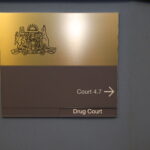What Drug Diversion Programs Are Available in New South Wales?

If you have been charged with a drug offence or your offending is related to drug-related issues, you may be able to avoid traditional criminal justice processes through caution or diversion schemes.
Here’s what you need to know.
Cannabis Cautioning Scheme
A police caution is a formal warning over your behaviour that allows you to avoid a criminal penalty.
Receiving a police caution means that there will be no criminal record of your interaction with the justice system.
The Cannabis Cautioning Scheme allows adult offenders in NSW detected for minor cannabis offences to receive a formal caution rather than be charged with an offence.
NSW Police can issue a formal caution if they encounter a person:
- Using cannabis;
- In possession of less than 15 grams of cannabis; or
- In possession of cannabis related equipment (such as a bong or pipe).
You will need to admit to the offence to receive a caution. You can only be cautioned twice and cannot be cautioned at all if you have prior convictions for drug offences, offences of violence or sexual assault.
A formal caution will include contact telephone numbers for the Alcohol and Drug Information Service. If a person receives a second caution, they are required to contact this service.
Youth Diversion
Under the Young Offenders Act 1997 (NSW), people under the age of 18 years who have committed minor drug offences such as possessing a prohibited drug are eligible to a number of pre-court diversion options. These include:
- A formal police warning;
- A caution, if the young person admits to the offence.
- A youth justice conference, which is a formal discussion between youth justice officials, the young person and anyone impacted by their offending.
There are no strict limits on how many times a young person can be granted youth diversion. However, granting diversion is up to the discretion of police and youth justice officials.
Proposed Illicit Drug Pre-Court Diversion
NSW Attorney-General Mark Speakman has proposed the implementation of pre-court diversion for adults found in possession of a small quantity of any illicit drug for personal use.
Under the proposal, persons found in possession of illicit drugs will be able to either pay a $400 penalty or participate in alcohol and other drug treatment to avoid being charged.
This plan was announced last year in response to the Special Commission of Inquiry Into The Drug “Ice” – which made 109 recommendations for drug law reform in the state, many of which were ignored by the government.
At this stage, it’s not clear when (and if) this proposal is going to be implemented.
Magistrates Early Referral Into Treatment (MERIT) program
If a drug-related matter has proceeded to court, a person may be eligible to participate in the Magistrates Early Referral Into Treatment program (MERIT).
The MERIT program allows eligible persons with drug-related problems to enter into treatment and rehabilitation programs before their next court hearing.
Recommendation into the program can come from police, lawyers or a Magistrate.
Once a person has been recommended for the program, a Magistrate will assess their suitability and make a decision whether to formally endorse participation in the program.
A person is eligible for the MERIT program if they:
- Consent to the program;
- Are an adult;
- Have an alcohol or other drug related problem;
- Have been released on bail or do not require bail;
- Are not charged with an offence that will be dealt with by the District Court or a sexual offence; and
- Live or have a connection with an area which offers the MERIT program.
The program is currently available for people who live or have a connection with (for example, work in) the following areas:
|
|
The program allows people with drug-related problems to be case managed by the Local Court. The program offers individual and group counselling, welfare support and assistance, opioid-substitution therapy and residential rehabilitation programs. Participants in the program will regularly report back to a Magistrate about their progress.
Following completion of the MERIT program, the person charged will attend a court hearing for their matter. Generally, successful participation in the program is viewed very favourable by the court and increases the odds of avoiding serious criminal penalties.
NSW Drug Court
The New South Wales Drug Court is a specialist “problem solving court” designed to address underlying issues of drug dependency connected to offending.
The Drug Court is designed for offenders who are dependent on drugs and are facing the possibility of a sentence of imprisonment if convicted.
To be eligible for the Drug Court a person must:
- Be highly likely to be sentenced to fulltime imprisonment if convicted,
- Have pleaded guilty or indicate that he or she will plead guilty to the offence,
- Be dependent on the use of prohibited drugs,
- Must live in an eligible local government area (LGA). Local Government Areas of Canterbury-Bankstown, City of Blacktown, City of Campbelltown, City of Cessnock, City of Fairfield, City of Hawkesbury, City of Lake Macquarie, City of Liverpool, City of Maitland, City of Newcastle, City of Parramatta, City of Penrith, City of Sydney, Cumberland, Dubbo Regional, Port Stephens, The Hills Shire;,
- Be 18 years of age or over, and
- Be willing to participate.
A person will be eligible for the program if they live within the following LGAs:
- City of Canterbury-Bankstown
- City of Blacktown
- City of Campbelltown
- City of Cessnock, City of Fairfield
- City of Hawkesbury
- City of Lake Macquarie
- City of Liverpool
- City of Maitland
- City of Newcastle
- City of Parramatta
- City of Penrith
- City of Sydney
- Cumberland City Council
- Dubbo Regional Council
- Port Stephens Council
- The Hills Shire;
A person is not eligible if they are:
- Charged with an offence involving violent conduct;
- Charged with a sexual offence or an offence punishable under Division 2 Part 2 of the Drug Misuse and Trafficking Act 1985
- Suffering from a mental condition that could prevent or restrict participation in the program.
Once referred into the Drug Court, a person undergoes mandatory withdrawal management, assessment and treatment planning sessions at a specialist unit at either the Metropolitan Remand and Reception Centre (MRRC) (male) or Silverwater Women’s Correctional Centre (females).
Following the completion of withdrawal management, the eligible person appears before the Drug Court to confirm a plea of guilty. They are then given a suspended sentence to undertake the program on a treatment plan.
The Drug Court program consists of three phrase:
- Phase 1 (minimum 3 months duration): in which participants must reduce drug use, stabilise physical and mental health, commence treatment for drug dependency, and cease criminal activity. Participants are required to undergo supervised urine drug testing at least three times per week and report back to the court up to twice per week.
- Phase 2 (minimum 4 months duration): in which participants must remain drug-free and crime-free, maintain good health, stabilise domestic and social environment and develop job and life skills. Participants are required to undergo supervised urine drug testing twice per week and report to the court once per fortnight.
- Phase 3 (minimum 5 months duration): in which participants must remain drug-free and crime-free, establish stable accommodation, gain employment, be employment ready, be engaged in an activity or education/ training which could lead to employment, or be engaged in full-time child-care or other positive activity, and be financially responsible. Participants are required to undergo supervised urine drug testing twice per week and report to the court once per month.
Following completion of the Drug Court program, the initial sentence can be confirmed, or set aside and another sentence imposed. Successful completion of the program means that it is highly likely that a non-custodial sentence will be imposed.
Going to court over an allegation of a drug offence?
If you have been accused of a drug offence and are going to court, call Sydney Criminal Lawyers anytime on (02) 9261 8881 to arrange a free first conference with an experienced, specialist drug defence lawyer who will advise you of your options, the best way forward and fight for the optimal outcome in your case.






